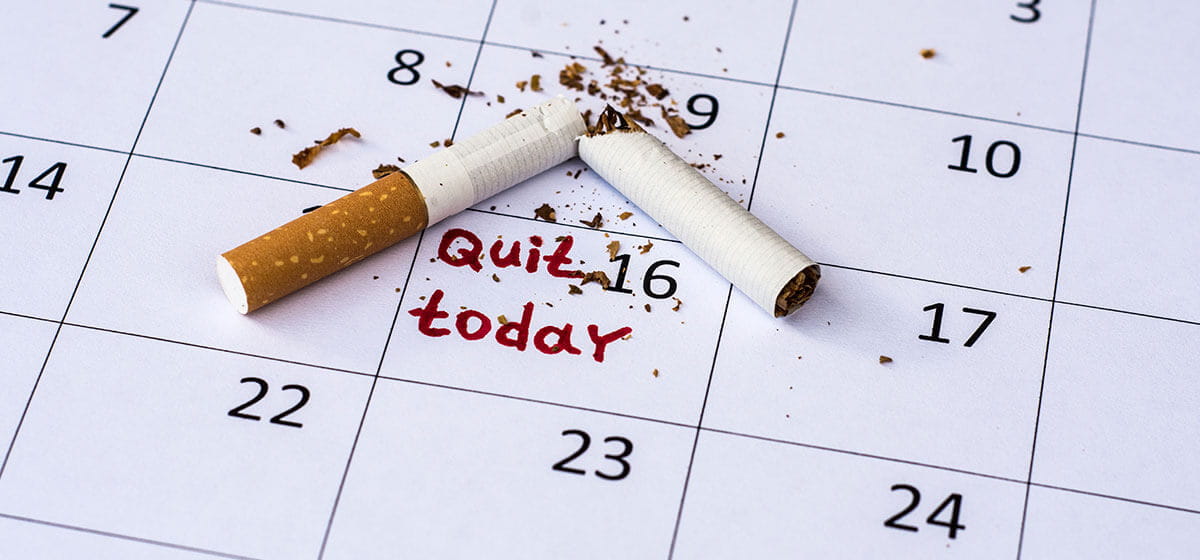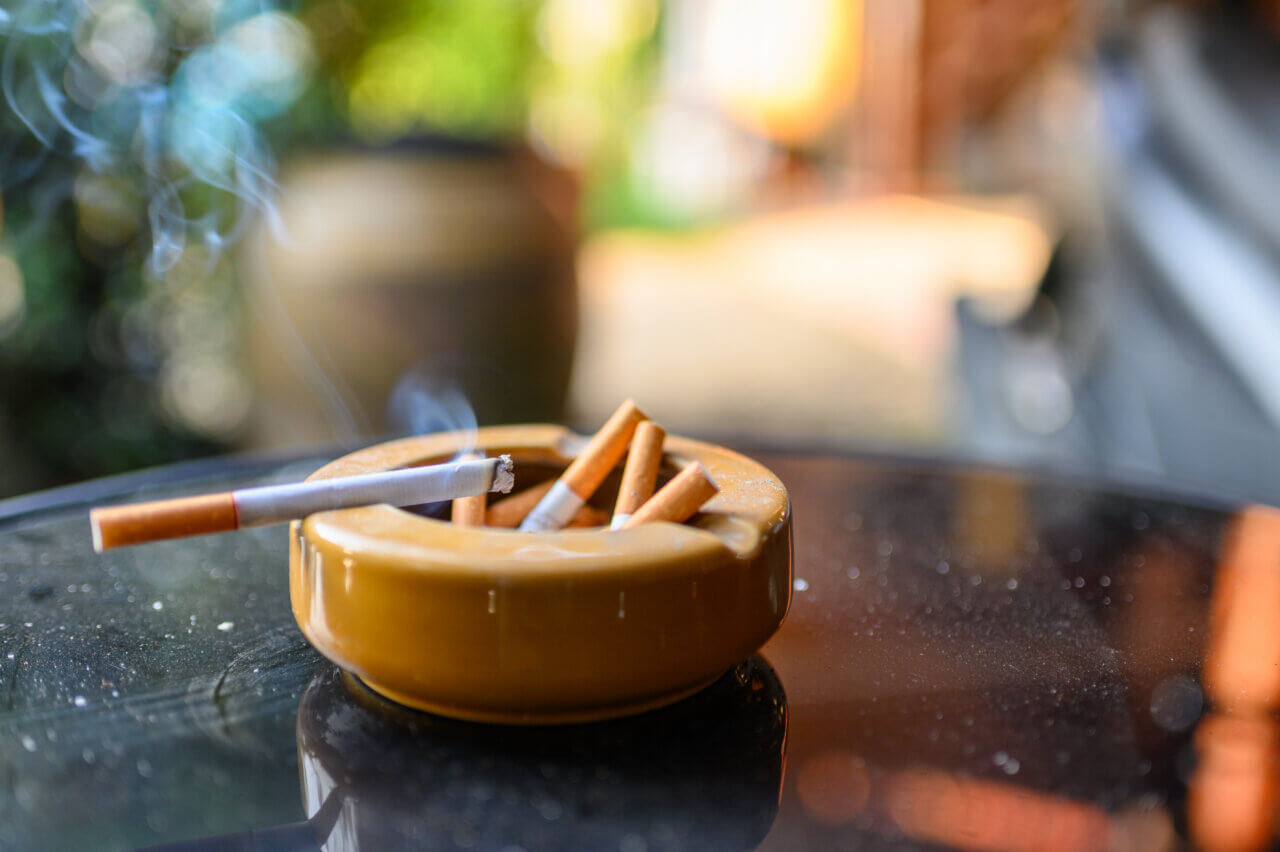6 Things to Know on Quit Day

Every smoker can become a former smoker. But it’s going to be hard work.
That’s why smokers should plan ahead for their “quit day” and have strategies in place to succeed, says Shawn C. Jones, MD, a physician with Baptist Health Medical Group. And they will need to stick to their plan for some time; nicotine cravings last three to six months.
Dr. Jones, who specializes in issues of the ear, nose, and throat, is eager to see people give up smoking, which kills 8,900 Kentucky residents yearly and cost the state $1.9 billion in healthcare in 2009. About 1 in 4 Kentuckians smoke, one of the highest rates in the country.
He offers this advice to would-be quitters.
1. Don’t just suffer — talk to your doctor. Options for quitting exist, from nicotine gum to prescription medications, to ease what will sometimes be intense cravings.
Treatments have become more accessible under a new Kentucky law requiring commercial health plans and Medicaid plans to provide patients access to certain over-the-counter and prescription treatments without a co-pay, he says.
“That’s really made the available cessation aids much more affordable for people.”
Plus, hearing “you need to quit” from your doctor has been shown to be a great influencer, he says.
2. Ditch the stash. Get rid of every cigarette, wherever they are. “You know they’re in your car, in your locker at work — get rid of all your supply so that it’s going to take a concentrated effort to stop by a store and buy a pack of cigarettes.”
Get rid of all the accessories, too: lighters, ashtrays and carrying cases. You’re not a smoker anymore, so you don’t need them around reminding you of smoking.
If you’ve smoked inside your home, wash down the walls, clean the upholstery and curtains, and launder bedding to rid it of the tobacco smoke smell.
3. Get your friends and family on board. Ask your loved ones for support. Tell them not to offer you cigarettes and not to hand one over even if you beg.
If you need more structured help, check out these online resources Kentucky offers to their residents.
4. Find ways to engage your mouth and hands. When you’re used to smoking, all parts of your body become accustomed to the habit. You’ll have to find new things to do with your mouth and hands.
Chew gum, suck a mint, hold a toothpick or carry a straw in your mouth. Play with a fidget spinner. Knead a stress ball or tennis ball.
Try not to substitute food for a cigarette, Dr. Jones says. “Drink a glass of water every time you want a cigarette. Go for a walk. Try not to pick up something to eat.”
For those worried about weight gain when they quit, Dr. Jones says it’s not automatic that you quit smoking and gain weight. It doesn’t happen to everyone. And even if you put on a few pounds, it’s better for your health than smoking.
5. Know — and avoid — your triggers. “A lot of smoking is behavioral,” Dr. Jones says. “If you always smoke with your husband after dinner, get up from the table and do something else. Go for a walk. Don’t just sit there and do the same thing if you know this is when you have a tendency to smoke.”
Ditto if you are used to going to bars some evenings; you might need a new place to watch the game for a while. “You are going to be tempted to go outside the bar to smoke,” Dr. Jones says. “Alcohol lowers your inhibitions.”
People who don’t work and stay at home are especially at risk. “You have a lot of time on your hands. You’re sitting at home watching the TV by yourself.”
That’s where a support network comes in. “Whether it’s a group of people you walk with at the park or do some other healthy activity — yoga, tai chi — you need a group of people who are committed to some healthy activity and getting involved in the community.”
6. If you break down and sneak a smoke, don’t beat yourself up. Start over. If the lure of cigarettes triumphs over your plans and strategies, don’t sweat it, Dr. Jones says. Most people need several tries to quit. “Make another quit date and try again, because you’re extremely unusual if you do it on the first go-round.”
Try to learn from your previous mistakes, and be kind to yourself as you attempt this difficult process. The next quit day could be the one that sticks.
The only way to know for certain if you have lung cancer is to see a doctor. Don’t put off your cancer screening — the earlier that lung cancer is diagnosed, the better the outcome. Take our lung cancer risk assessment to estimate your personal risk.



